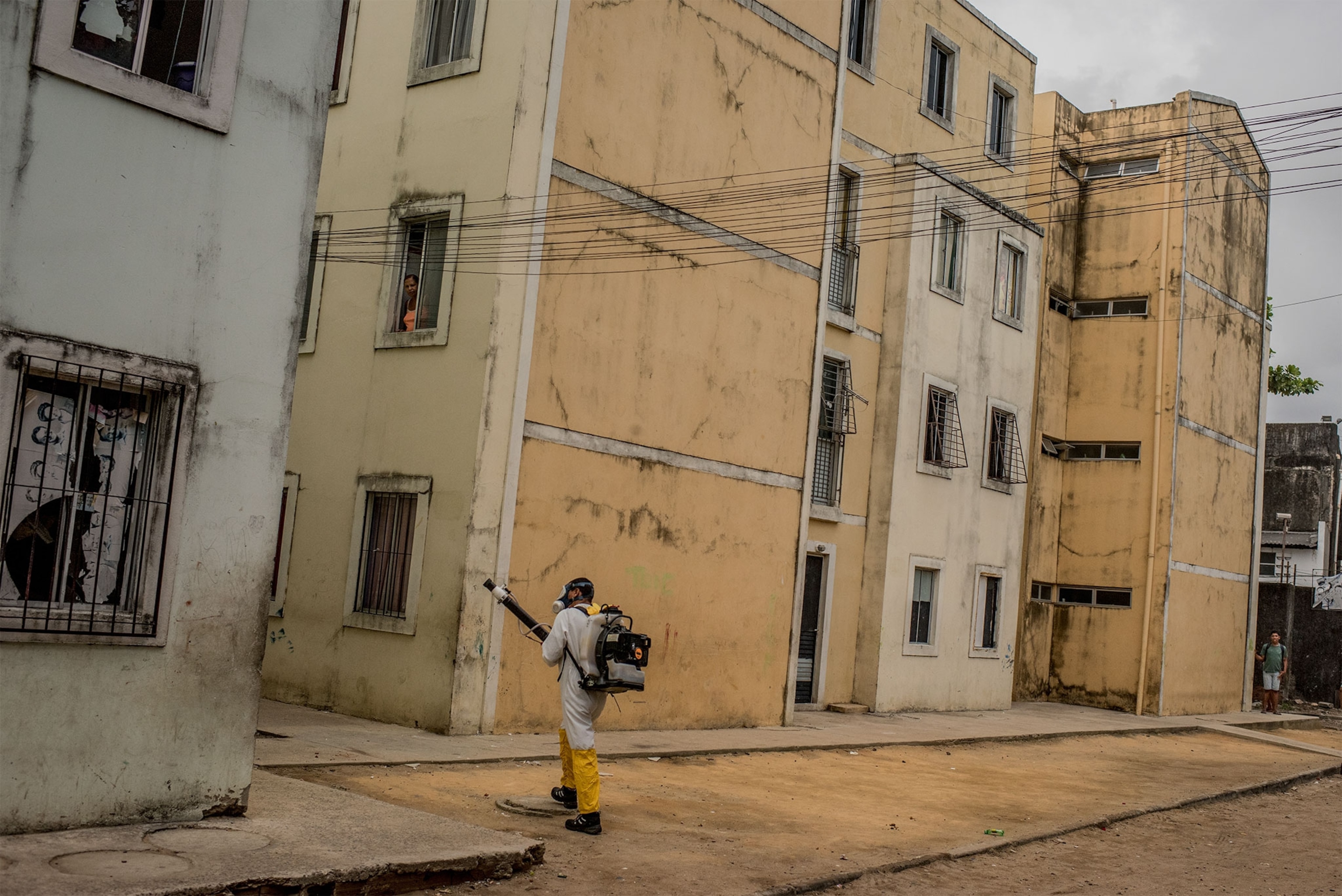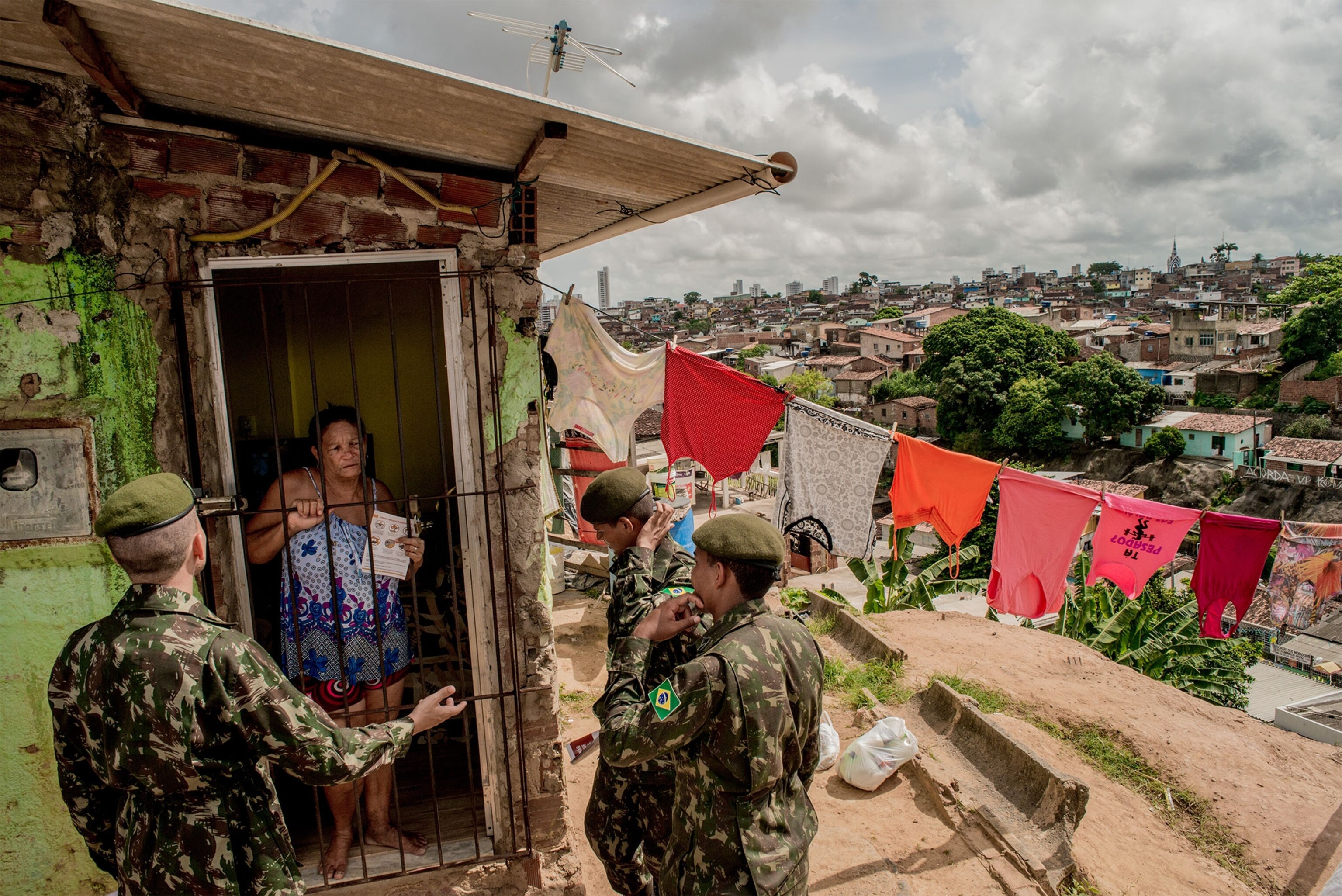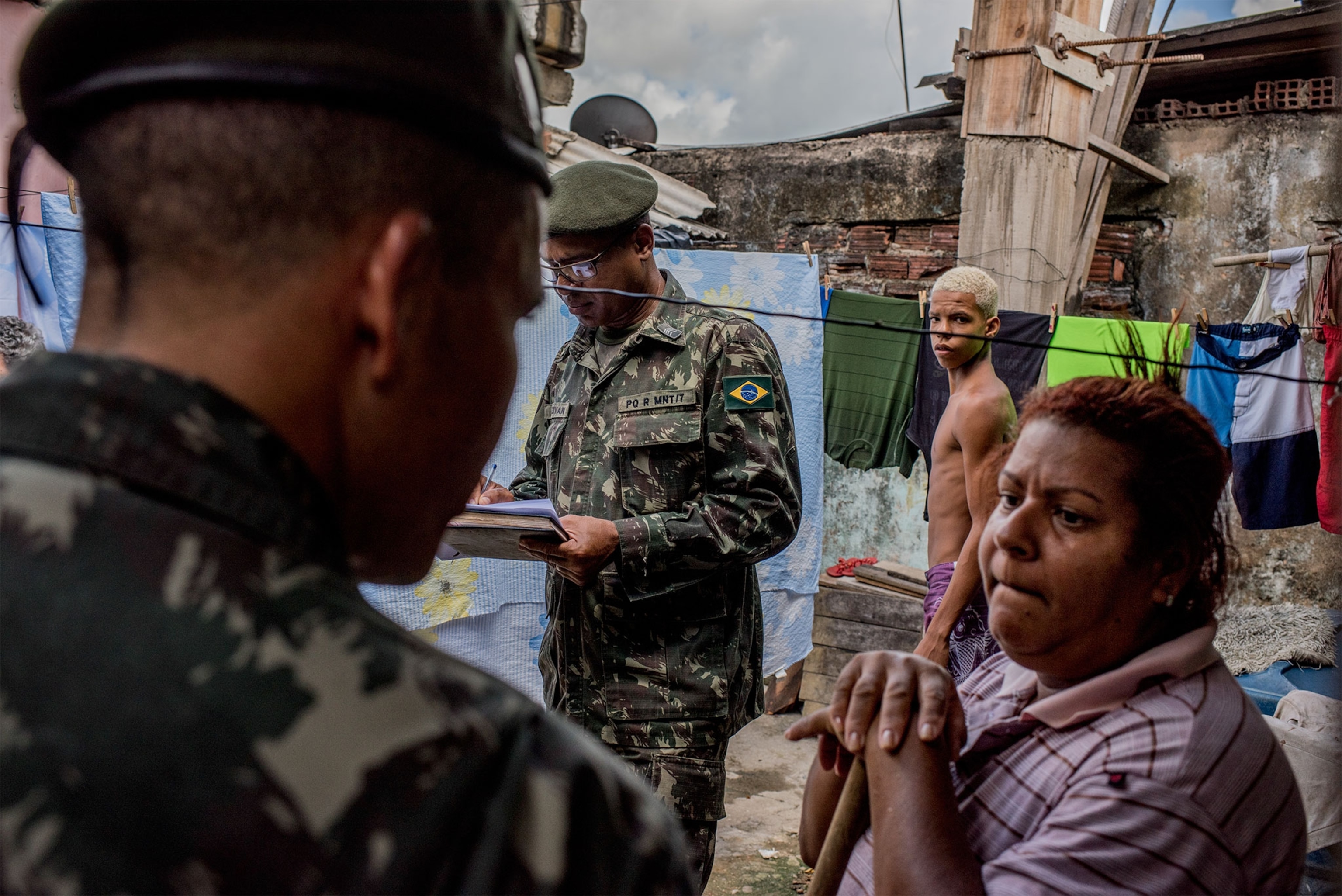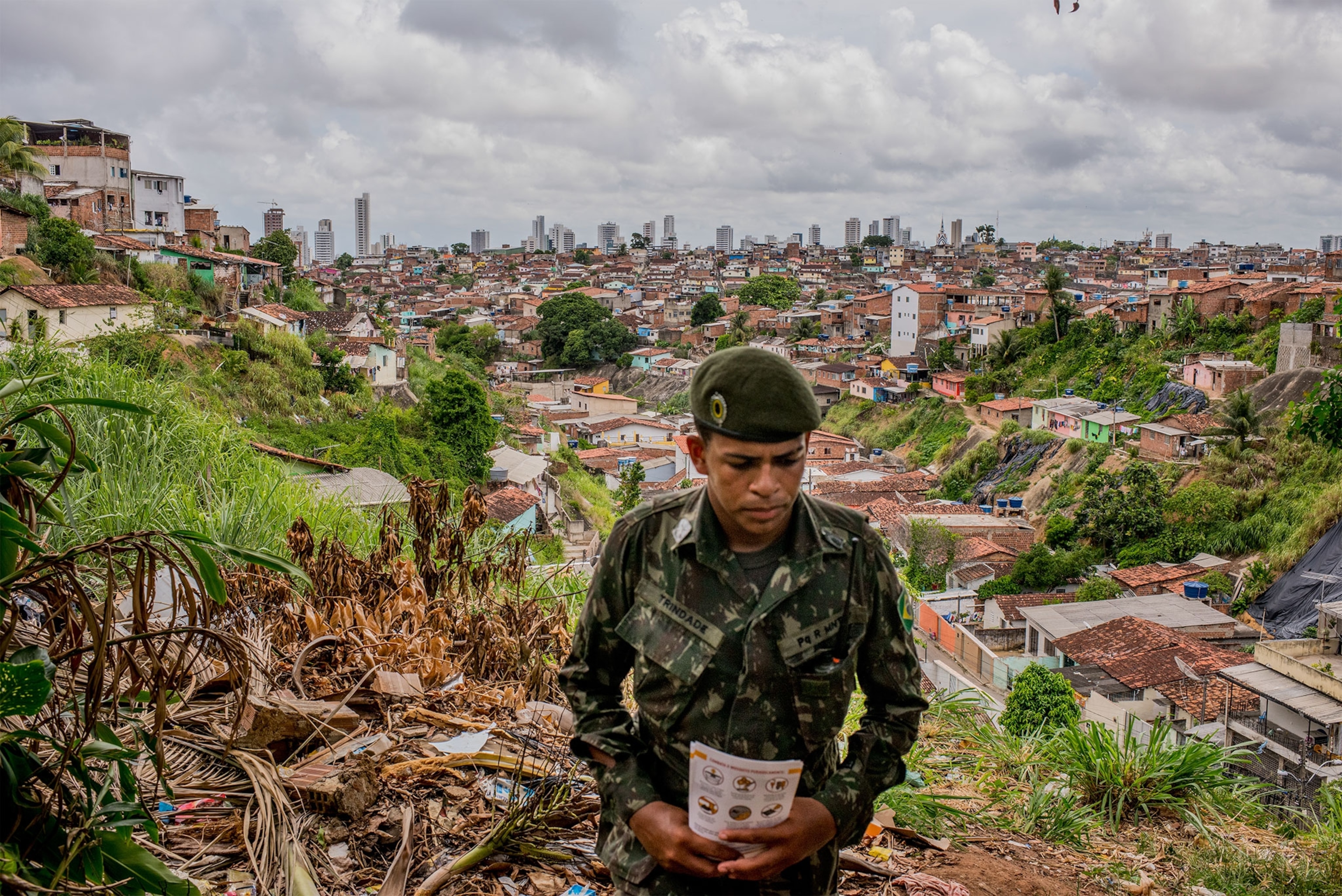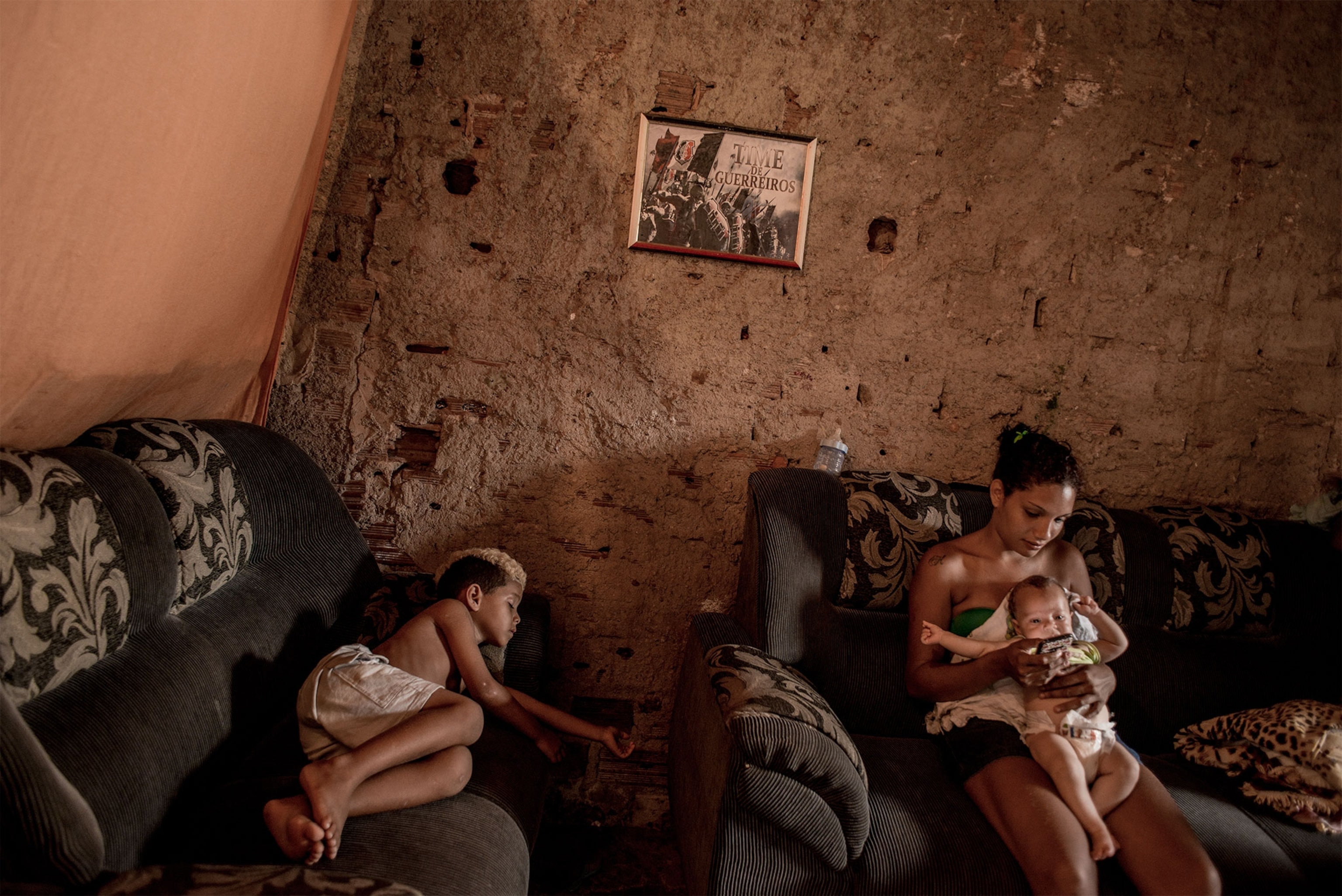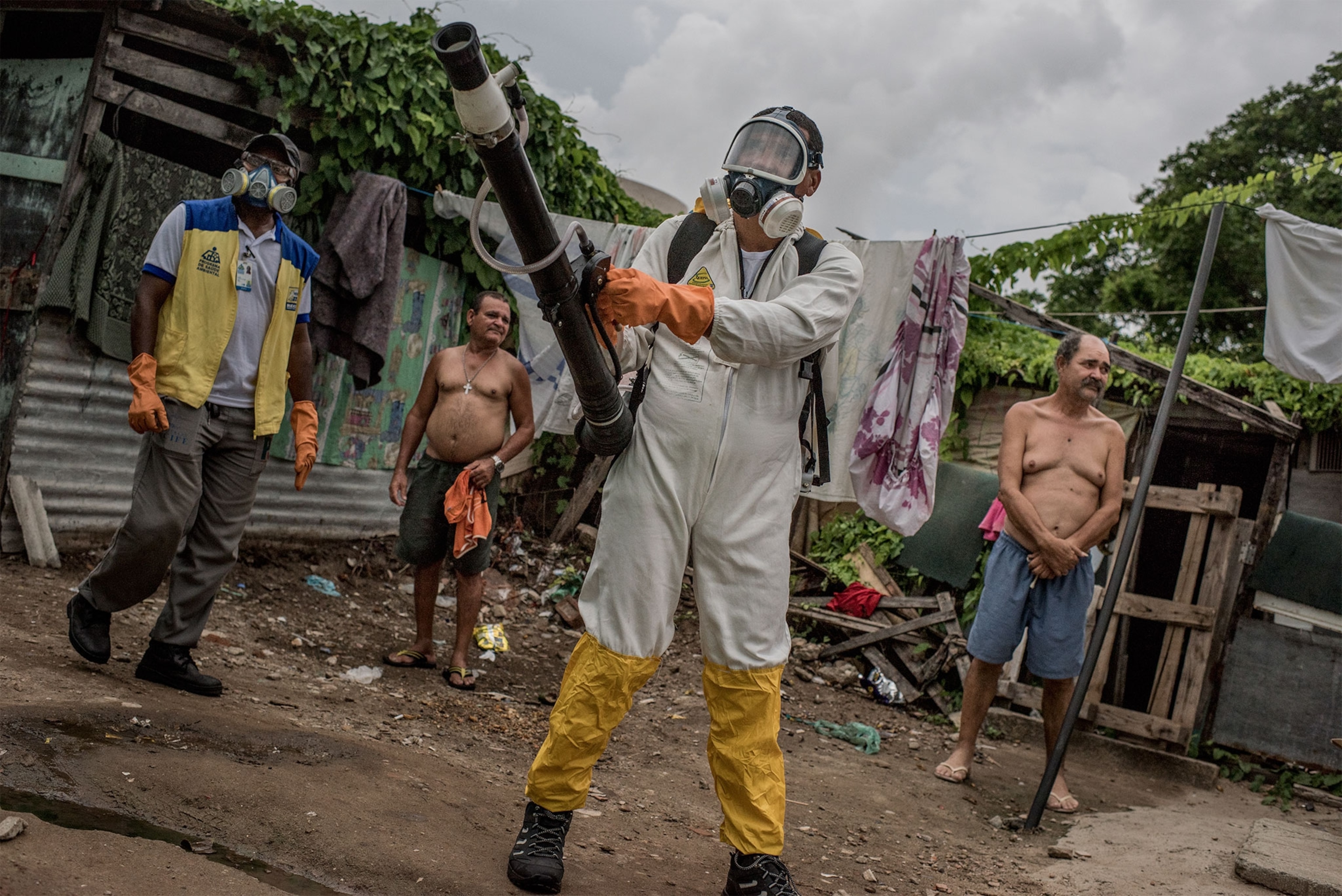
Pictures Capture Daily Battle Against Zika Mosquitoes
“It’s almost impossible to control,” says photographer Tomás Munita, who documented daily life in Brazil’s favelas.
How do you stop disease-carrying mosquitoes from multiplying? That’s the question plaguing the Brazilian government, which has been sending army soldiers door to door on a mission to fight Zika—the virus suspected of causing microcephaly in infants born to infected mothers.
“They are giving leaflets saying you have to keep your backyard clean from rubbish,” says photographer Tomás Munita, who has been documenting Recife, a northeastern state capital with a population of 3.7 million. Any stray items left outside, even a bottle cap, can collect rainwater and become a breeding ground for the Aedes aegypti mosquitoes that are thought to be the main carriers of Zika.
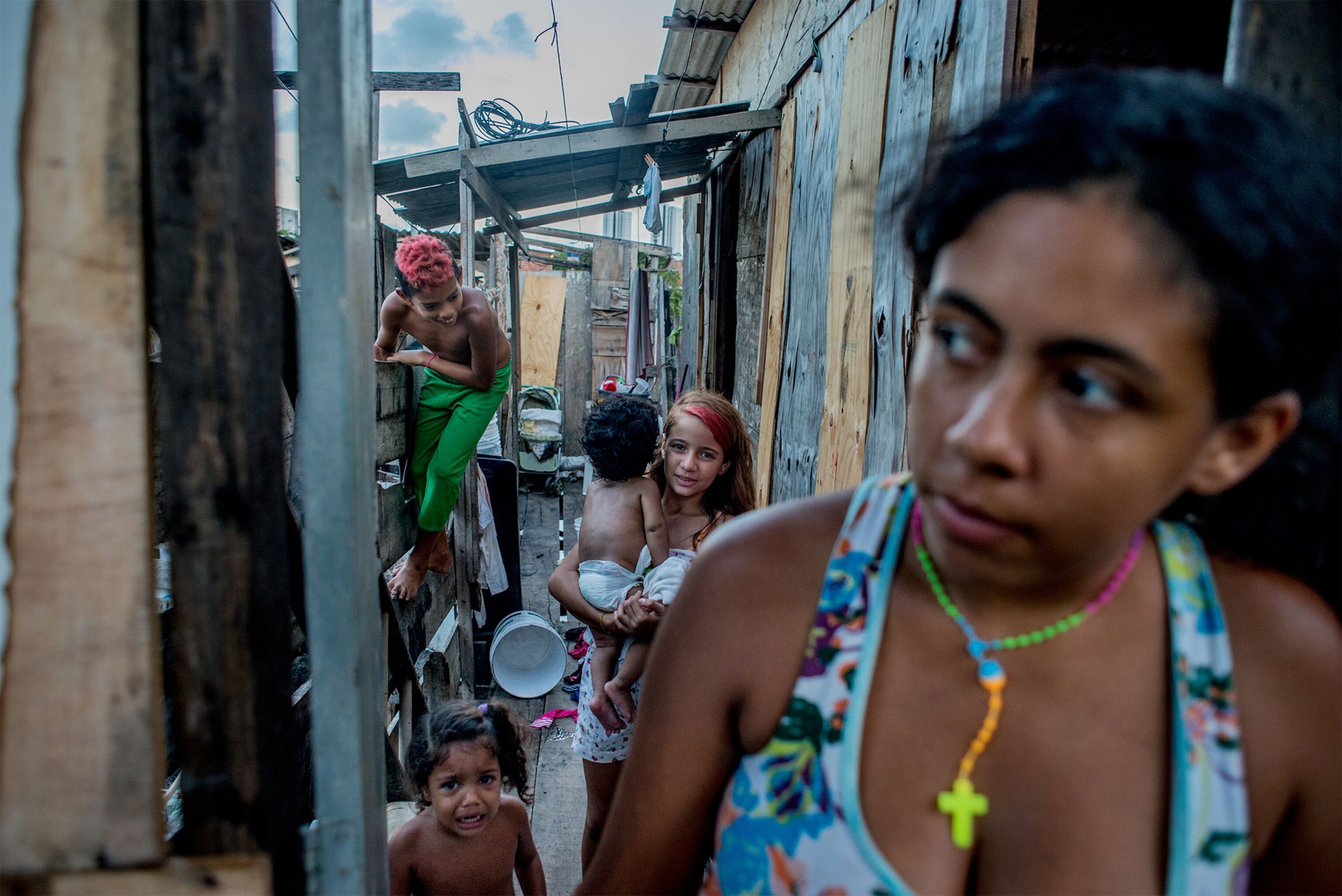
(Read “Zika Raises the Question: Are Mosquitoes Necessary?”)
But in Brazil’s favelas, or poor neighborhoods, Munita says it’s hard to imagine that the government’s information campaign will have much effect.
“It’s almost impossible to control something like that in that kind of place,” he says. Many houses in the favelas are makeshift shacks of cardboard and discarded sheet metal. With limited access to clean water and garbage collection, trash piles up and collects water, creating a perfect breeding ground for mosquitoes.
The mosquito scourge goes far beyond these tight-packed neighborhoods. Aedes aegypti has been incredibly hard to kill since it arrived in Latin America with the slave trade from Africa. Huge eradication programs in the 1950s stamped out the mosquito in some countries, only to have them surge back in the 1970s and ‘80s.
Even the country’s health minister, Marcelo Castro, has been quoted as saying that Brazil is “badly losing the battle” against mosquitoes, which aren’t just a threat because they could carry Zika. In Recife, Munita says that some people who aren’t pregnant fear catching chikungunya and dengue from mosquitoes more than Zika, since those diseases cause more severe illness.
(Read why Zika heralds a new kind of pandemic.)
Now, the government is trying to chemically halt mosquito breeding by fumigating streets and lacing water tanks with larvicide. But soon the country will try something much more extreme, reports Reuters: breeding male mosquitoes in captivity, sterilizing them with gamma rays, and releasing them where female mosquitoes are breeding.
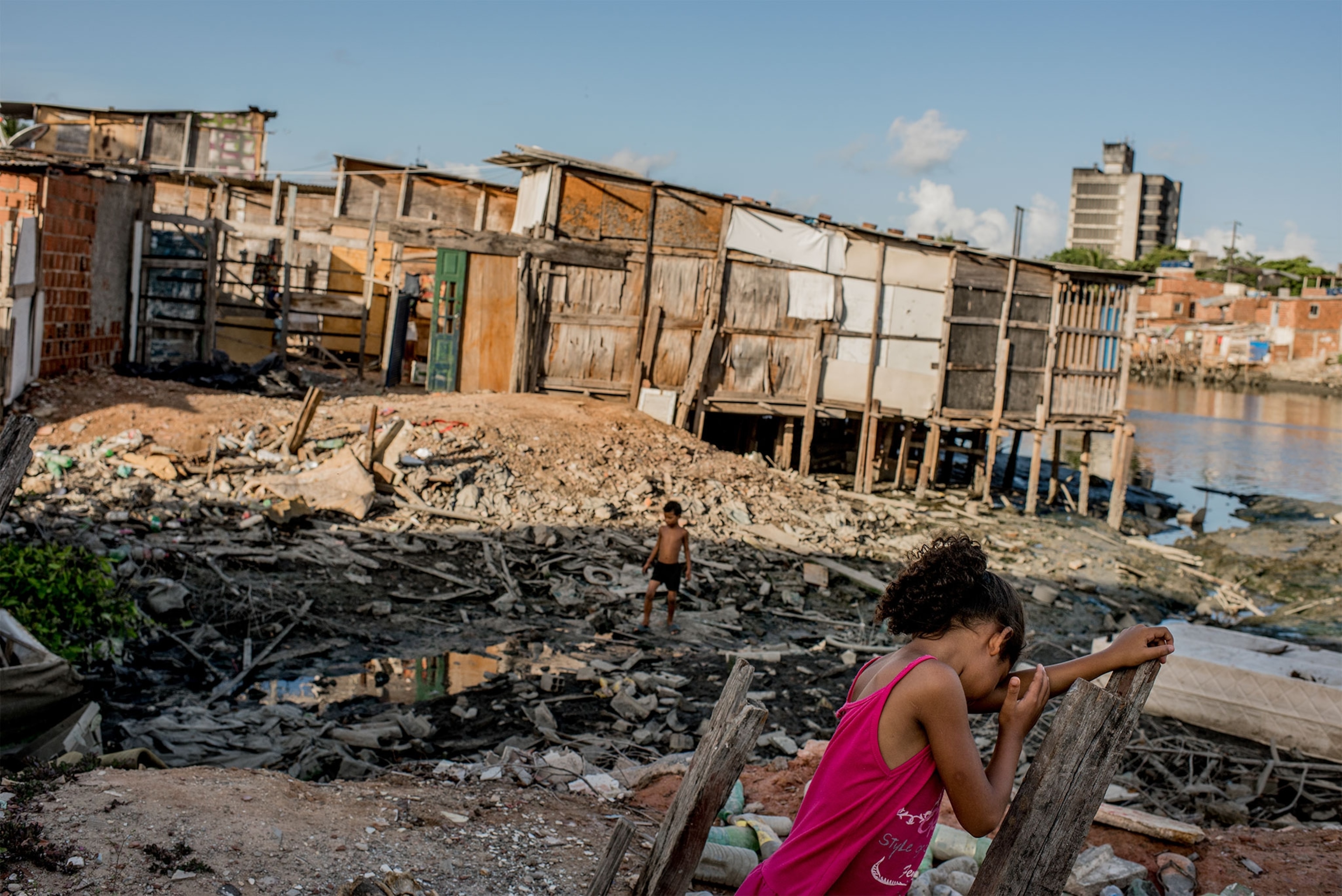
Meanwhile, those who live in the poorest sections of Recife must decide whether it’s worth their time to follow the government’s advice about how to prevent the spread of mosquitoes, which to many feel like just a fact of life.
(Read “Can We Stop Mosquitoes From Infecting the World?”)
“The mosquito is everywhere,” says Munita. “Really, there’s not much they can do other than keeping their own house clean. But if your neighbor is not clean, then the whole neighborhood will have mosquitoes.”
Follow Becky Little on Twitter.
